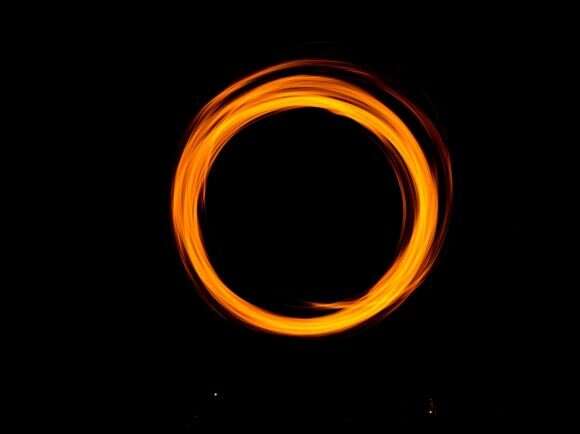| Manu | Date: Saturday, 12-December-2020, 9:22 AM | Message # 1 |

--dragon lord--
Group: undead
Messages: 13927
Status: Offline
| Black holes gain new powers when they spin fast enough
by Brian Koberlein, Universe Today

General relativity is a profoundly complex mathematical theory, but its description of black holes is amazingly simple. A stable black hole can be described by just three properties: its mass, its electric charge and its rotation or spin. Since black holes aren't likely to have much charge, it really takes just two properties. If you know a black hole's mass and spin, you know all there is to know about the black hole.
This property is often summarized as the no-hair theorem. Specifically, the theorem asserts that once matter falls into a black hole, the only characteristic that remains is mass. You could make a black hole out of a sun's worth of hydrogen, chairs or those old copies of National Geographic from Grandma's attic, and there would be no difference. Mass is mass as far as general relativity is concerned. In every case, the event horizon of a black hole is perfectly smooth, with no extra features. As Jacob Bekenstein said, "black holes have no hair."
But with all its predictive power, general relativity has a problem with quantum theory. This is particularly true with black holes. If the no-hair theorem is correct, the information within an object is destroyed when it crosses the event horizon. Quantum theory says that information can never be destroyed. So the valid theory of gravity is contradicted by the valid theory of the quanta. This leads to problems such as the firewall paradox, which can't decide whether an event horizon should be hot or cold.
Several theories have been proposed to solve this contradiction, often involving extensions to relativity. The difference between standard relativity and these modified theories can only be seen in extreme situations, making them difficult to study observationally. But a new paper in Physical Review Letters shows how they might be studied through the spin of a black hole.

read more//source - https://phys.org/news/2020-12-black-holes-gain-powers-fast.html
|
| |
| |















